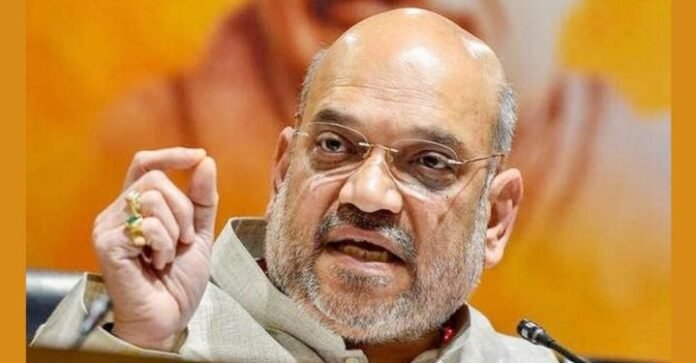In a landmark development, Home Minister Amit Shah has reaffirmed the Indian government’s commitment to restoring the statehood of Jammu and Kashmir (J&K) in the near future. His assurance came after several years of political changes in the region, particularly after the abrogation of Article 370 in August 2019. The contentious decision to revoke Article 370, which granted special status to Jammu and Kashmir, was met with mixed reactions, both domestically and internationally. Since then, the region has seen significant shifts in its governance and political landscape.
Amit Shah’s statement comes as a response to calls from regional political leaders, civil society groups, and local activists who have been pressing for the restoration of the statehood that was stripped from Jammu and Kashmir. This decision, they argue, is vital for the political empowerment of the people of the region, and for the restoration of their rights and autonomy within the Indian Union.
Historical Context
The special status of Jammu and Kashmir under Article 370 of the Indian Constitution was a result of the region’s unique historical circumstances, following its accession to India in 1947. However, after the 2019 decision, the region was reorganized into two Union Territories: Jammu and Kashmir, and Ladakh. This move effectively diluted the region’s autonomy and led to widespread protests, especially from local political parties like the National Conference (NC) and the Jammu and Kashmir People’s Democratic Party (PDP).
Since the revocation, the region has seen a transformation in its political and administrative setup, with elections held for the Jammu and Kashmir Legislative Assembly and local bodies. However, many critics argue that the absence of statehood has hindered the region’s development, limiting local decision-making powers and autonomy.
The Significance of Amit Shah’s Statement
Amit Shah’s recent statement is seen as a significant development, signaling that the central government is aware of the growing demand for statehood among the people of Jammu and Kashmir. The Home Minister clarified that the government intends to restore statehood once the situation in the region stabilizes and the security scenario improves. This assurance is likely to alleviate concerns among local political leaders and the public, who have been demanding the restoration of statehood as a symbol of political dignity and self-governance.
Shah emphasized that the government is committed to ensuring that Jammu and Kashmir returns to full political normalcy. He stressed that the revocation of Article 370 was a necessary step to integrate the region more fully with the rest of India and to counter terrorism and insurgency.
Local Reactions and Political Reactions
Following Shah’s statement, there has been a mixed response from local political leaders in Jammu and Kashmir. While some leaders have welcomed the announcement, others have expressed caution. Farooq Abdullah, the former Chief Minister of Jammu and Kashmir, and a prominent leader of the National Conference, welcomed the statement but questioned the government’s sincerity. He called on the government to outline a clear roadmap for the restoration of statehood, including the restoration of constitutional rights and the return of state powers to local authorities.
Similarly, Mehbooba Mufti, the former Chief Minister and leader of the PDP, has urged the government to take immediate steps to restore the state’s previous status, which she argued was crucial for peace and development. Local civil society groups and youth organizations have also called for a clear and transparent process for the restoration of statehood.
On the other hand, some members of the ruling Bharatiya Janata Party (BJP) have supported the government’s approach, asserting that the decision to revoke Article 370 was in the best interests of the region. They argue that the restoration of statehood should be based on conditions of peace and stability in the region, and that it is important to ensure that Jammu and Kashmir is integrated into the national framework.
A Roadmap for Restoring Statehood
The restoration of statehood will likely be a complex and gradual process, contingent on a variety of factors, including security considerations, political consensus, and economic recovery. One of the key challenges the government will face is navigating the political dynamics between different factions in the region. Since the revocation of Article 370, Jammu and Kashmir has seen a fragmentation of political power, with various parties vying for influence. There will need to be broad political agreement before the restoration of statehood can take place.
Moreover, the process will also involve consultations with various stakeholders, including local communities, civil society groups, and security agencies. The government may also need to amend certain laws and policies to ensure that the region’s return to statehood does not lead to any further instability.

